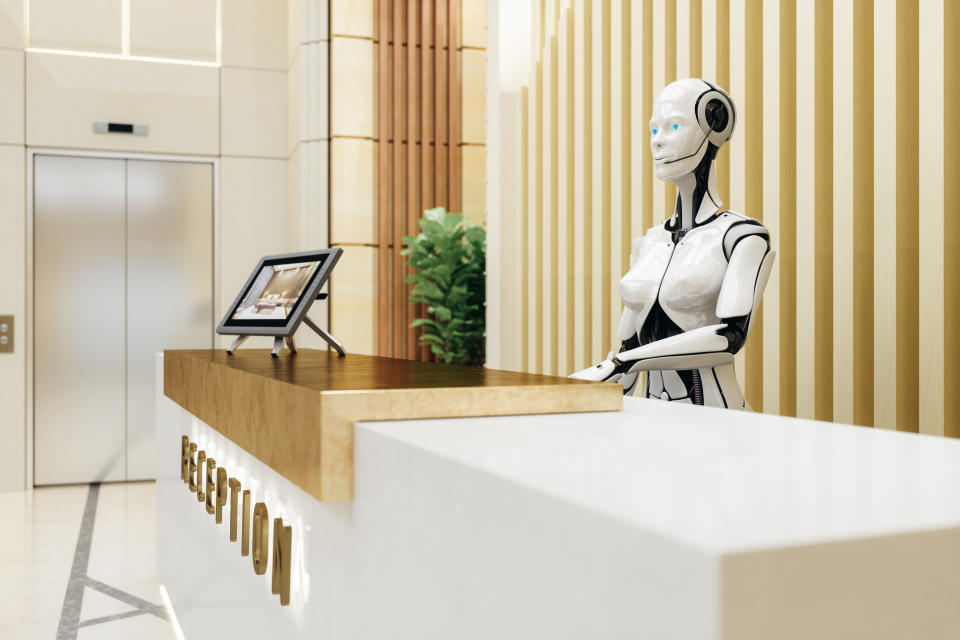Robots could replace hotel staff in the post-lockdown world, study suggests

Robot bartenders and reception staff could replace humans in a new, post-lockdown world, a study has suggested.
Researchers from the University of Surrey spoke to 18 hotel HR experts about the challenges of using robots – and their application in a post COVID-19 world.
Robot receptionists might sound like science-fiction, but they have already been used at hotels such as Henn na Hotel (‘Weird Hotel’) in Tokyo.
And, in the wake of the coronavirus crisis, robot staff are operating at another Tokyo hotel used for mildly ill COVID-19 patients.
Pepper, a talking robot, greeted new guests at the lobby, while Whiz, a cleaning robot, operates in areas where patients pick up meals and other daily necessities to reduce infection risks for human staff.
Latest coronavirus news, updates and advice
Live: Follow all the latest updates from the UK and around the world
Fact-checker: The number of COVID-19 cases in your local area
6 charts and maps that explain how coronavirus is spreading
Robotic bartenders are already a reality in US casinos – not the human-like androids of science-fiction, but automated bars that can pour cocktails faster than serving a beer.
With the advent of the coronavirus crisis, these trends look set to intensify, the researchers believe.
Dr Tracy Xu, lecturer in hospitality at University of Surrey, said: “Application of service robots in the hotel industry is on the rise.

“With the added factor of a need to reassure potential guests that their stays will be compatible with minimised social contact and human interaction, this process could be accelerated.
“During the lockdown period it is likely that hotel managers will be planning for a fresh start in the recovery and rebuilding period after the social isolation restrictions have been lifted and this is predicted to have a positive stimulus on the adoption of service robots.”
Read more: Belgian hospitals employ robot receptionists
While hotel robots may seem like gimmicks, automated robot bartenders such as ‘Easybar’ are seen as a logical step after in-room Nespresso machines and other now-standard technologies.
James Nicol, CEO of Easybar Beverage Management Systems, said in an interview with Travel Weekly last year: “In a casino environment, there's a lot of liquor being served and a lot of table service out on the gaming floor, and this is where these systems are kind of revolutionising things.
“Servers can simply come up, draw all the drinks off the system and it rings up automatically, with all that information being stored and tracked. And of course, the speed of service is just so fast. You can get a cocktail out faster than you can serve a bottle of beer.”
Xu said: “The anticipated applications and integration of robotic technology will require leaders of the future to carefully consider the balance between the roles of service robots and human employees in the guest experience and to nurture a work environment that embraces open-mindedness and change.”
Dr Mark Ashton, teaching fellow at University of Surrey, said: “Forward-thinking businesses who are proactively prepared for the introduction of these exciting new technologies will benefit in the long-term.”



